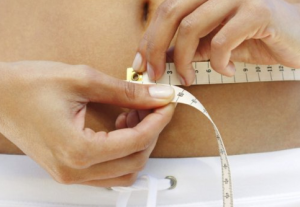Gaining Weight After Anorexia: What To Expect
 Gaining weight is arguably the most difficult part of recovering from anorexia nervosa, but it is also the most important. Your starving body needs the nutrients food provides in order to function properly and keep you alive.
Gaining weight is arguably the most difficult part of recovering from anorexia nervosa, but it is also the most important. Your starving body needs the nutrients food provides in order to function properly and keep you alive.
Increasing the amount of food you consume can cause various physical and psychological changes. Emily Troscianko, anorexia survivor and Psychology Today blogger, recounts her personal experience with the disorder in her series, “A Hunger Artist.”
“In my posts on ‘The day I started eating again’ and ‘How it feels to eat again,’ I described the psychological changes that took place as I abandoned the mantra of my own personal ‘as little as possible,’ and told of the extreme hunger that accompanied the increase in intake. In ‘Eating, continued,’ I mentioned some of the stomach pain and the diarrhea that I experienced in the months after the dietary change.”
In one of her posts, Troscianko outlines some of the common physical changes that occur when a severely malnourished individual begins to regain weight. She also offers advice for reducing the severity of these changes.
Refeeding syndrome
Reintroducing nutrients to your body can cause metabolic and biochemical disturbances that may result in muscle weakness, convulsions, confusion, and other symptoms. In severe cases, these disturbances can be fatal. Ensuring that the refeeding process is done gradually reduces the risk of developing this syndrome.
“The greater the malnutrition, the greater the risk of complications during recovery—but also, of course, the greater the risks of remaining ill… when confronting the daunting idea of recovery, it’s important to bear in mind not just what might happen if you go ahead with it, but what might happen if you don’t.”
Bloating
Fluid retention can cause your ankles to swell during the day and bags to form around your eyes at night. Additionally, the sensation of bloating can be uncomfortable. The severity of bloating is also reduced by reintroducing food gradually.
Stomach Cramps
Because your body’s digestion process has slowed and its muscles have weakened, your stomach will likely stick out a bit more than you might expect. Stomach cramps, abdominal discomfort, and nausea can occur as your body adapts to the consumption of more food. Limiting the amount of insoluble fiber in your diet can help reduce these symptoms.
“It’s important to remember that all of these things will pass, and are not reliable indicators of what the recovered state will be.”
Initial Rapid Weight Gain
Fluid retention may also cause rapid weight gain during the first few days or weeks of refeeding, but this gain is only temporary. It is important to avoid weighing yourself every day since fluctuations, though normal, can lead to unnecessary anxiety.
“In general, weight fluctuations over the course of the day, and from day to day, aren’t negligible, so it’s important not to attribute significance to a single reading.”
Gradual Distribution of Fat
After about three weeks of sticking to your refeeding plan, a thin layer of fat will be deposited all over your body, providing insulation and protection. This distribution of fat tends to be uneven at first but eventually evens out.
“The more one knows when setting out on the journey of recovery, the less likely one is to be deterred from carrying on by unexpected and unexplained difficulties. The early stages of a shift in eating habits may well be frightening anyway, not only psychologically but also physically—but apprehension at specific possibilities is better than a fear of the limitless unknown.”
Source: Psychology Today
 Eating Disorder Self Test. Take the EAT-26 self test to see if you might have eating disorder symptoms that might require professional evaluation. All answers are confidential.
Eating Disorder Self Test. Take the EAT-26 self test to see if you might have eating disorder symptoms that might require professional evaluation. All answers are confidential.